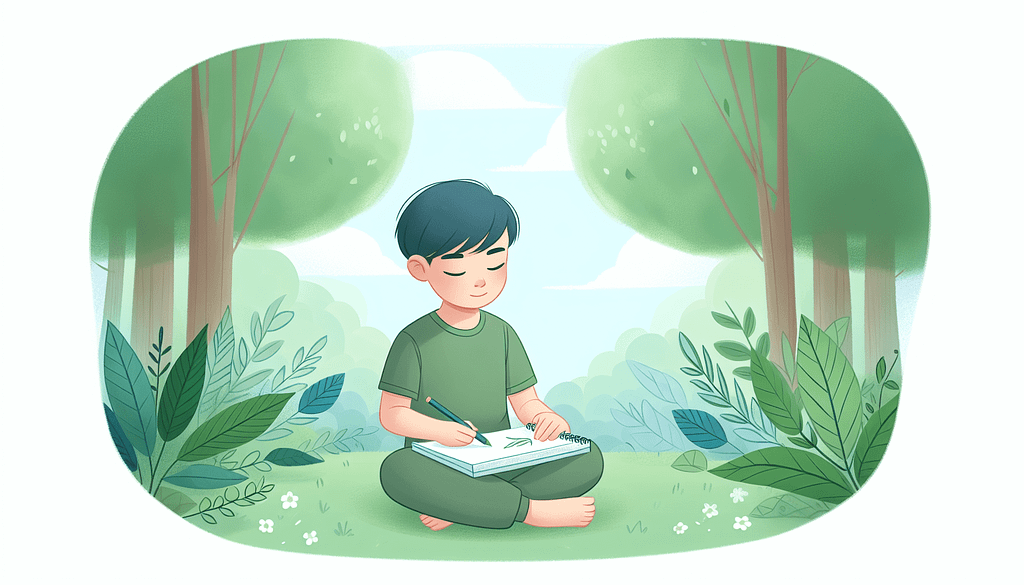As an Amazon Associate I earn from qualifying purchases.
Discover how CBD can help kids with ADHD by reducing hyperactivity, improving focus, alleviating anxiety & enhancing sleep. Learn benefits, side effects & expert tips.
How CBD Can Help Kids with ADHD
Attention Deficit Hyperactivity Disorder (ADHD) is a neurodevelopmental disorder that affects many children worldwide. It can be challenging not only for the child but also for parents, teachers, and caregivers who strive to provide support and guidance. Various treatments and interventions are available, but recently, there’s been growing interest in using CBD (Cannabidiol) as a natural remedy. This article will delve into how CBD can help kids with ADHD and offer insights into its benefits, potential side effects, and recommendations.

Understanding ADHD
ADHD manifests in symptoms such as inattention, hyperactivity, and impulsiveness. These symptoms can significantly impact a child’s academic performance, social interactions, and overall quality of life. Traditional treatments often involve medication, behavioral therapy, or a combination of both. However, not all children respond well to these treatments, leading parents and caregivers to explore alternative options like CBD.
What is CBD?
CBD, short for Cannabidiol, is a compound found in the cannabis plant. Unlike THC (tetrahydrocannabinol), CBD is non-psychoactive, meaning it doesn’t produce the “high” associated with marijuana use. Instead, it interacts with the body’s endocannabinoid system (ECS), which regulates various physiological processes including mood, sleep, appetite, and pain. CBD has been the subject of numerous studies for its potential therapeutic benefits, including its effects on ADHD symptoms.
How Does CBD Work?
To understand how CBD can help manage ADHD symptoms, it’s essential to know how it interacts with the ECS. The ECS comprises receptors (CB1 and CB2), endogenous cannabinoids, and enzymes that regulate the synthesis and degradation of these cannabinoids. When CBD is introduced into the body, it influences the ECS, potentially promoting balance and homeostasis. This interaction can help mitigate symptoms like hyperactivity, impulsivity, and inattention by modulating neurotransmitter activity.
Potential Benefits of CBD for Kids with ADHD
Reducing Hyperactivity
One of the core symptoms of ADHD is hyperactivity. Children with ADHD often exhibit excessive movement, fidgeting, and an inability to stay still. Preliminary research suggests that CBD can help reduce hyperactivity by calming the central nervous system. By promoting relaxation, CBD may help children focus better and participate more effectively in classroom settings and social activities.
Improving Attention and Focus
Inattention is another hallmark of ADHD. Children may struggle to focus on tasks, follow instructions, or complete assignments. CBD has been shown to have a positive impact on attention and cognitive function by influencing certain neurotransmitters in the brain. This can potentially enhance a child’s ability to concentrate, thus improving academic performance and daily functioning.
Alleviating Anxiety
Many children with ADHD also experience comorbid conditions like anxiety. Anxiety can exacerbate ADHD symptoms, making it even harder for children to concentrate and stay calm. CBD has well-documented anxiolytic properties, meaning it can help reduce anxiety levels. By alleviating anxiety, CBD can create a more conducive environment for children to manage their ADHD symptoms more effectively.
Enhancing Sleep Quality
Sleep disturbances are common in children with ADHD. Poor sleep quality can worsen ADHD symptoms and affect overall well-being. CBD has been reported to promote better sleep by regulating sleep-wake cycles. Improved sleep can lead to better mood, increased attention span, and lower levels of hyperactivity the following day.

Potential Side Effects and Considerations
While CBD shows promise as a treatment for ADHD, it’s crucial to approach it with caution. Potential side effects include:
- Drowsiness
- Dry mouth
- Changes in appetite
- Diarrhea
These side effects are generally mild and temporary, but it’s essential to monitor your child’s response to CBD closely. Consult with a healthcare provider before starting any new treatment, particularly for children, as they can provide guidance on appropriate dosages and potential interactions with other medications.
Legal and Safety Concerns
The legal status of CBD varies by location, so it’s important to ensure that the product you choose is compliant with local laws. Additionally, not all CBD products are created equal. Look for products that are:
- Derived from hemp (with less than 0.3% THC)
- Third-party tested for purity and potency
- Free from contaminants like heavy metals and pesticides
By choosing a high-quality CBD product, you can better ensure its safety and efficacy for your child.
Consulting with Healthcare Providers
Before introducing CBD as a treatment option, it’s essential to consult with healthcare providers familiar with ADHD and CBD. They can help determine whether CBD is a suitable option for your child based on their specific symptoms, medical history, and current treatments. Additionally, healthcare providers can help monitor your child’s progress and make any necessary adjustments to the treatment plan.
Case Studies and Research
While research on CBD for ADHD is still in its early stages, several studies and anecdotal reports suggest promising outcomes. For instance, a study published in the journal “Frontiers in Pharmacology” found that CBD could potentially improve symptoms of ADHD by regulating dopamine levels in the brain. Another study highlighted in the journal “European Neuropsychopharmacology” suggested that CBD might help reduce hyperactivity and improve cognitive function in children with ADHD.
Parents and caregivers have also reported positive experiences with CBD. Many have noted improvements in their child’s attention span, mood, and overall behavior. However, it’s important to remember that individual responses to CBD can vary, and more research is needed to fully understand its effects.
Practical Tips for Parents
If you’re considering CBD as a treatment option for your child with ADHD, here are some practical tips to help you get started:
- Start Low and Slow: Begin with a low dose of CBD and gradually increase it until you find the optimal dosage for your child.
- Keep a Journal: Document your child’s symptoms, behavior, and any side effects to track their progress and adjust the dosage as needed.
- Choose the Right Product: Opt for high-quality, third-party tested CBD products to ensure purity and potency.
- Be Consistent: Consistency is key when using CBD. Administer it at the same time each day to maintain steady levels in the body.
- Stay Informed: Keep up-to-date with the latest research and developments in the field of CBD and ADHD.
FAQs About CBD and ADHD
Is CBD Safe for Kids?
Generally, CBD is considered safe for children, but it’s essential to consult with a healthcare provider to determine if it’s the right option for your child. Monitoring for side effects and adjusting the dosage as needed can help ensure safety.
How Long Does It Take to See Results?
The time it takes to see results can vary from child to child. Some may experience improvements within a few days, while others may take several weeks. Consistency and patience are key when using CBD as a treatment.
Can CBD Be Used Alongside Other ADHD Medications?
It’s crucial to consult with a healthcare provider before combining CBD with other ADHD medications. They can provide guidance on potential interactions and help determine if it’s safe to use both treatments together.
What Forms of CBD Are Available?
CBD is available in various forms, including oils, tinctures, gummies, capsules, and topical creams. Choose a form that is easy for your child to take and fits their preferences.
Final Thoughts
CBD offers a promising alternative treatment for children with ADHD, with potential benefits such as reducing hyperactivity, improving attention and focus, alleviating anxiety, and enhancing sleep quality. While more research is needed to fully understand its effects, many parents and caregivers have reported positive outcomes. Always consult with a healthcare provider before starting any new treatment and choose high-quality, third-party tested CBD products to ensure safety and efficacy.
If you found this article helpful, don’t forget to clap, leave a comment, and subscribe to our Medium newsletter for updates on the latest research and information on natural health treatments.
Thank you for taking the time to read this article on how CBD can help kids with ADHD. Your support and engagement mean the world to us. If you have any questions or would like more information, feel free to reach out.
Disclosure: This story incorporates AI assistance for content creation.
Disclosure: As an Amazon Associate, I earn from qualifying purchases.
Amazon and the Amazon logo are trademarks of Amazon.com, Inc, or its affiliates.
